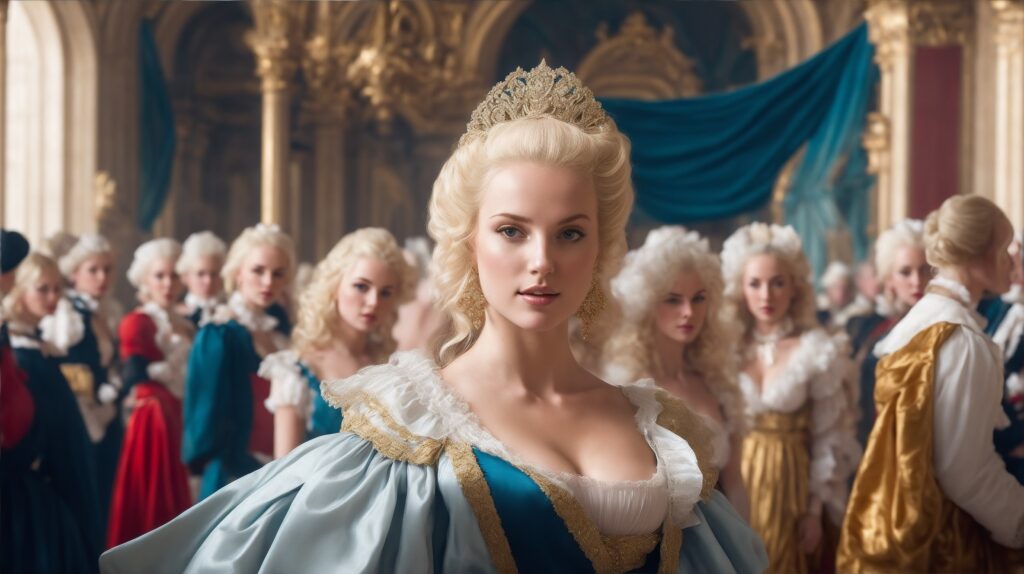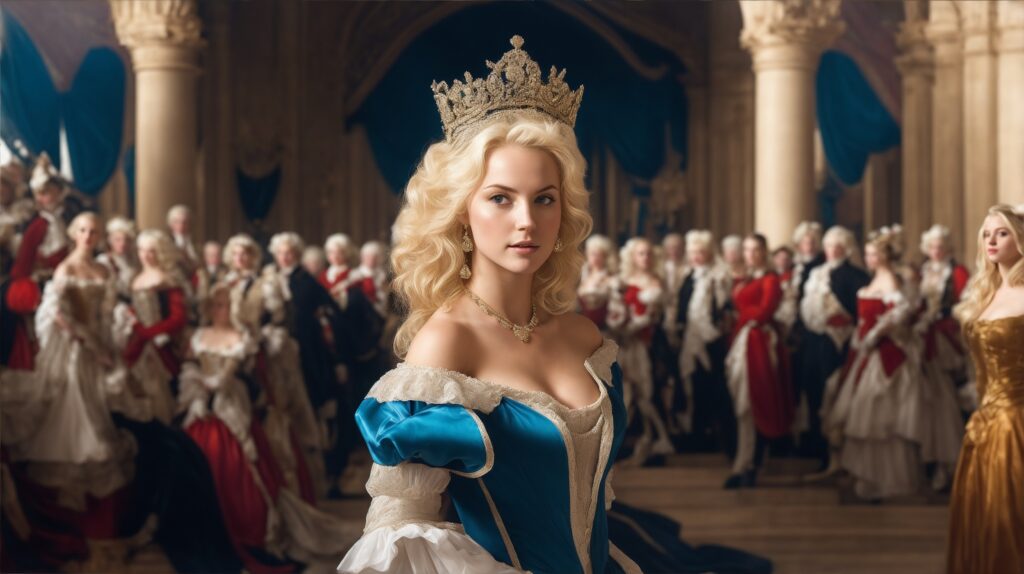Discuss the mock-heroic elements in The Rape of the Lock. How does Pope employ epic conventions and language to elevate a seemingly trivial event, such as the theft of a lock of hair, to the realm of the heroic?

Mock-Heroic Elements in “The Rape of the Lock”: Elevating the Trivial to the Heroic
Alexander Pope’s “The Rape of the Lock” is a prime example of mock-heroic poetry, a satirical genre that takes the conventions of epic poetry and applies them to seemingly trivial or insignificant subjects. Through the use of epic language, grandeur, and heightened rhetoric, Pope elevates the theft of a lock of hair to epic proportions, effectively creating a humorous and critical commentary on the aristocratic society of his time. By employing mock-heroic elements, Pope both entertains and critiques, highlighting the absurdity of magnifying trivial matters while satirizing the grandiosity and superficiality of the elite.
The Invocation of the Muse:
The mock-heroic style begins with the invocation of the muse, a conventional feature of epic poetry. In “The Rape of the Lock,” Pope humorously invokes the Sylphs and Gnomes, supernatural beings that serve as protectors of Belinda’s vanity. This whimsical invocation, though satirical, follows the epic tradition and sets the tone for the rest of the poem. By invoking supernatural beings to oversee trivial matters, Pope highlights the society’s misplaced priorities and the irony of their concerns.
The Grandeur of Descriptions:
Epic poetry is known for its elaborate descriptions of characters, landscapes, and events. Pope mirrors this convention by providing intricate and hyperbolic descriptions of Belinda’s appearance and the objects surrounding her. For instance, the description of Belinda’s dressing table, “Here Files of Pins extend their shining Rows, / Puffs, Powders, Patches, Bibles, Billet-doux” (Canto I, lines 121-122), employs detailed and ornate language to describe mundane items. This elevates the trivial to the grand, satirizing the aristocracy’s fixation on appearances.
The Epic Similes:
Epic poetry often employs elaborate similes to compare events or objects to larger, grander concepts. Pope integrates epic similes into “The Rape of the Lock,” although in a playful and satirical manner. The comparison of Belinda to Thalestris and Helen employs the epic simile convention while highlighting the superficiality of romantic pursuits in the society. This satirical use of epic similes emphasizes the disparity between the epic form and the trivial subject matter.
The Quest Narrative:
Epic narratives often involve quests or journeys undertaken by heroic figures. In “The Rape of the Lock,” the quest for the lock of hair becomes the central narrative, infused with the epic spirit. Belinda’s journey through the social event and card game mirrors the heroic quest, albeit in a comically exaggerated manner. The use of epic language and structure to describe this seemingly trivial pursuit emphasizes the society’s obsession with trivialities.
The Battle Sequence:
A hallmark of epic poetry is the inclusion of battle sequences involving gods, heroes, or supernatural beings. In “The Rape of the Lock,” Pope parodies this convention through the mock battle over the lock of hair. The description of the battle, complete with extravagant weaponry, grand entrances, and exaggerated confrontations, highlights the society’s propensity to turn minor conflicts into grand spectacles. This satirical depiction mocks the aristocracy’s inflated sense of drama.
The Intervention of Supernatural Beings:
Supernatural intervention is a recurring motif in epic poetry. Pope incorporates this element through the Sylphs and Gnomes, who act as protectors of Belinda’s vanity. This intervention serves as a parody of the divine interventions seen in traditional epics. The sylphs’ involvement in trivial matters reflects the society’s superficial reliance on supernatural forces to maintain their image.
The Battle of the Sexes:
Epic poetry often explores conflicts between genders, and Pope uses the mock battle between Belinda and the Baron’s supporters to satirize gender dynamics. This battle mirrors the epic trope of conflicts between opposing forces, emphasizing the society’s inclination to turn even gender-related misunderstandings into grand confrontations. The use of epic language and structure here serves as a critique of the society’s preoccupation with trivial disputes.
The Catalogs and Cataloging:
Epic poems often include catalogs or lists of characters, objects, or places. In “The Rape of the Lock,” Pope parodies this convention by cataloging the items in Belinda’s purse. This cataloging, although trivial in content, mirrors the epic tradition and adds to the grandeur of the poem’s form. The description of items like “Billets-doux” (Canto II, line 43) and “patches, powder, and Pomatums” (Canto II, line 130) reflects the society’s obsession with appearance.
The Elevated Language:
Epic poetry is characterized by elevated and formal language, often employing archaic terms and elaborate phrasing. Pope mimics this linguistic style throughout “The Rape of the Lock,” using elevated language to describe even the most trivial events. For instance, the term “invade” (Canto III, line 140) is used to describe the action of cutting the lock, echoing the language of epic warfare. This elevated language contrasts with the frivolous subject matter, adding to the humorous effect.
The Epithets and Grand Titles:
Epic poetry employs epithets or grand titles to describe characters or events. In “The Rape of the Lock,” Pope playfully uses this convention to describe the mundane characters, such as “Clarissa the Fair” (Canto I, line 12) and “Thalestris, Gildon, or Lintot” (Canto II, line 3). These titles elevate the characters to epic proportions, highlighting the satirical disconnect between their grand titles and their actual actions.
The Use of Hyperbole:
Hyperbole, or exaggerated language, is common in epic poetry to emphasize the grandeur of events or characters. Pope employs hyperbole in “The Rape of the Lock” to magnify the trivial. The cutting of the lock, for example, is described with epic hyperbole: “Steel could the labour of the Gods destroy” (Canto IV, line 154). This overblown language emphasizes the society’s tendency to amplify minor events.
The Parody of Heroes and Heroines:
Epic poetry often features heroic figures who embody ideals and virtues. In “The Rape of the Lock,” Belinda and the Baron play the roles of mock-heroic heroes and heroines. The elaborate description of their appearances and actions mirrors the presentation of traditional epic heroes. By applying epic qualities to these characters, Pope satirizes their superficiality and the society’s misplaced adoration.
The Use of Irony:
Irony is a crucial element in the mock-heroic style, as it underscores the gap between appearance and reality. Throughout the poem, Pope employs irony to highlight the disparity between the epic language and the trivial events. For instance, the description of Belinda’s lock as a “bright tresses” (Canto I, line 9) echoes the language used for significant objects in traditional epics. This irony amplifies the satirical effect of the poem.
The Conflation of Triviality and Grandeur:
One of the key features of mock-heroic poetry is the conflation of triviality and grandeur. Pope deliberately blurs the lines between the epic and the trivial, creating a humorous dissonance. By describing a card game with the same gravity as an epic battle, Pope highlights the society’s inclination to treat minor matters with undue seriousness. This conflation serves as a vehicle for satirical commentary on the aristocracy’s skewed priorities.
The Heightened Rhetoric:
Epic poetry employs heightened rhetoric and eloquent speeches. Pope incorporates this element into “The Rape of the Lock” through Belinda’s speech in Canto IV. Her speech, filled with dramatic declarations and lofty language, mirrors the conventions of epic speeches. However, the subject of her speech—her lost lock of hair—emphasizes the absurdity of applying epic rhetoric to trivial matters.
The Anticlimactic Resolution:
Epic poetry often concludes with a climactic resolution. In “The Rape of the Lock,” Pope subverts this convention by offering an anticlimactic resolution to the conflict. The return of the lock in Canto V, achieved through supernatural means, is presented as a minor event rather than a grand resolution. This subversion adds to the satirical effect of the poem, emphasizing the disparity between the epic form and the trivial content.
The Blend of Seriousness and Levity:
One of the key aspects of mock-heroic poetry is the interplay between seriousness and levity. Pope employs this blend to create a nuanced satire. While he elevates the trivial to epic proportions, he also maintains a sense of humor and irony. This balance prevents the poem from becoming too solemn and reinforces the satire by emphasizing the absurdity of treating insignificant events as heroic narratives.
The Overall Effect of Mock-Heroic Style:
In “The Rape of the Lock,” the mock-heroic style serves as a vehicle for Pope’s satirical critique of the aristocratic society’s values, superficiality, and misplaced priorities. By employing epic conventions and language, Pope effectively magnifies the trivial and exposes the absurdity of the aristocracy’s preoccupations. The poem’s blend of humor, irony, and grandeur invites readers to both enjoy the entertaining narrative and reflect on the societal themes it satirizes.
Conclusion:
In “The Rape of the Lock,” Pope employs mock-heroic elements to create a witty and insightful satire of the aristocratic society. By using epic conventions, language, and structures, he elevates the theft of a lock of hair to the realm of the heroic, highlighting the society’s obsession with appearances, trivialities, and grandiosity. This satirical approach offers readers a lens through which to view the aristocracy’s distorted values and to reflect on the larger implications of their superficial concerns. Through the mock-heroic style, Pope achieves a multi-layered critique that both entertains and enlightens.
*****
Read More:
More Questions and Answers from The Rape of the Lock by Alexander Pope




